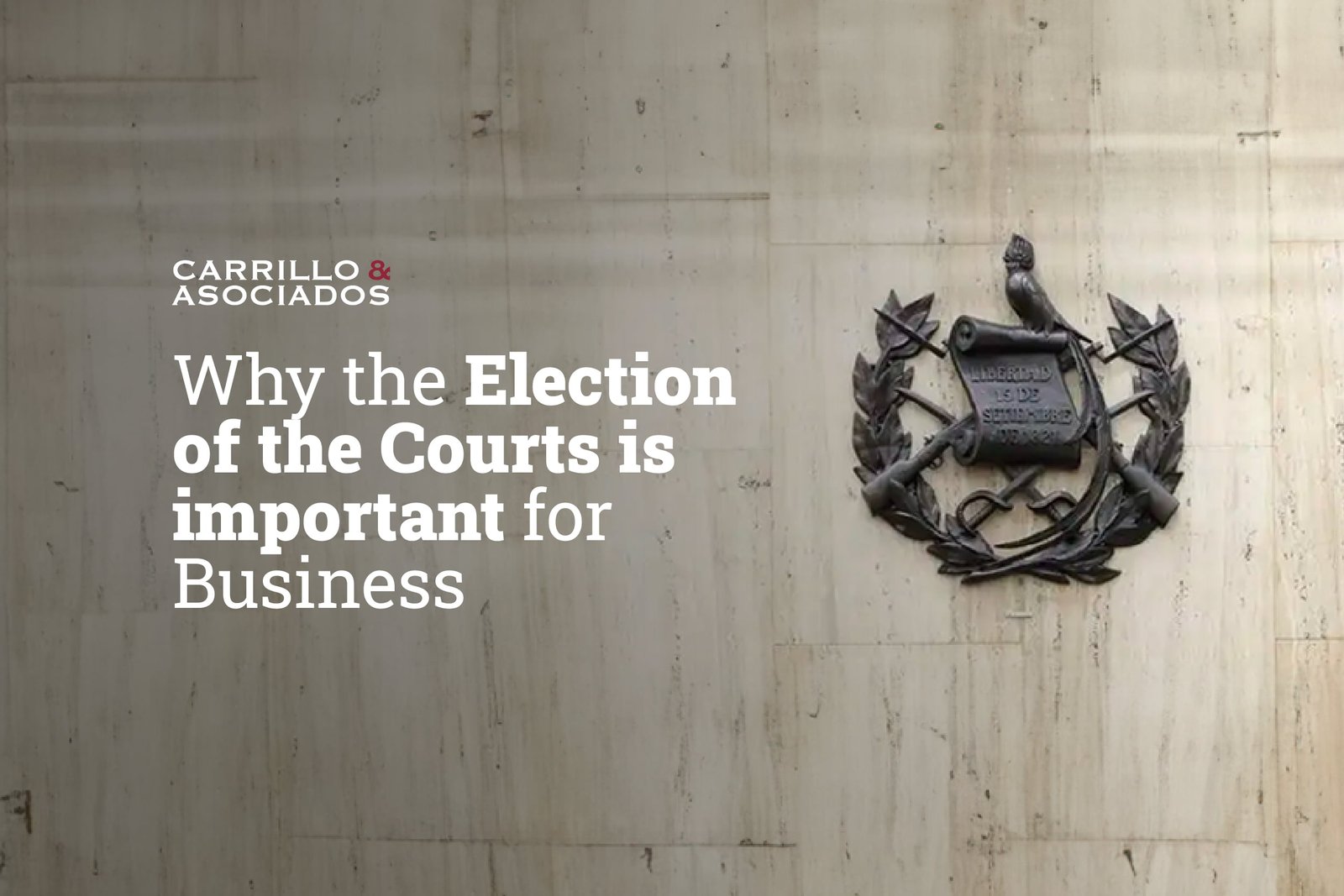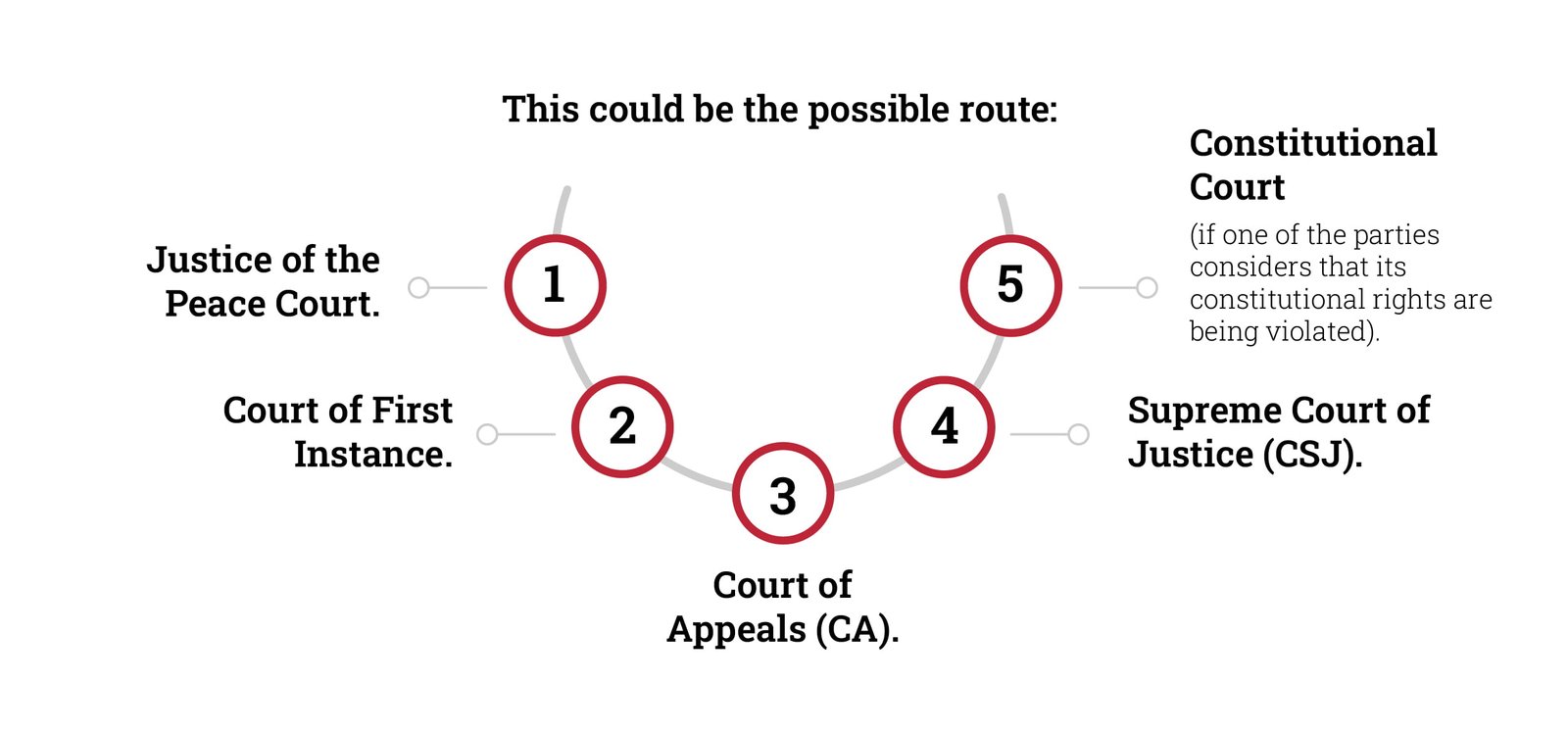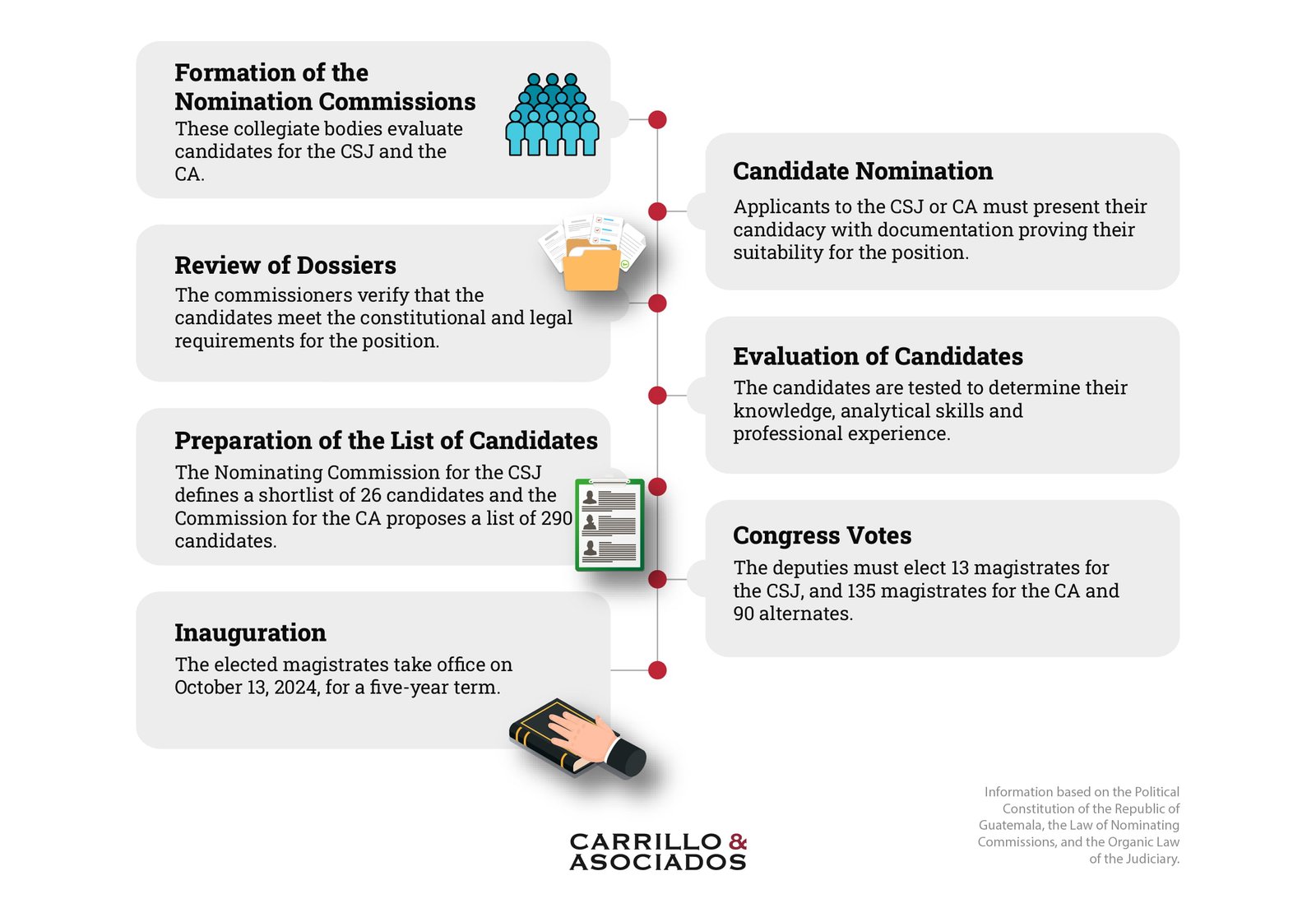
Guatemala is currently undergoing the election for the next 13 magistrates of the Supreme Court of Justice (CSJ) and 135 magistrates and 90 alternates of the Courts of Appeals (CA) for the next five years (2024-2029). The work the nomination commissions are doing to send the best nominees to Congress is fundamental, since its results will directly impact democracy, the Rule of Law and the business climate in the country.
Legal disputes are like health problems: we think that these situations will never happen to us, until unfortunately they do. And on that day, one can only hope that one encounters professionals of integrity and honor so that the resolutions or sentences that are issued are fair and in accordance with the law.
If we look at it from a business perspective, only the creation of an objective, independent, capable and upright judiciary will provide certainty and legal security to investments and the construction of a better country.
The Guatemalan Justice System
Let's think of a scenario where your company enters into a dispute with another company for a possible breach of contract. The case would have to be heard by a civil-commercial Court of First Instance[1]. In the event that one of the parties is not satisfied with the resolution issued, it would have the possibility of appealing to other instances until all resources regulated in the procedural laws are exhausted.

As in any hierarchy, one would expect that as the case escalates, the resolution will be more objective and fair. Therefore, if it reaches a Court of Appeals or the CSJ, one would probably expect to get a better resolution. It is assumed that, at those levels, the training and professional background of the magistrates will allow them to have a better judgment due to their experience and training.
This shows how important it is to have good professionals in the courts. Suitable and honorable magistrates ensure that rights are upheld and provide the system with legal certainty and impartiality. It also prevents one of the parties from gaining an undue advantage in the process by using unethical or blatantly illegal methods.
It is also important to mention that, in Guatemala, there is the possibility that companies that obtain an award (resolution) in an arbitration may file an appeal for review before a CA. For this reason, the selection of suitable magistrates is crucial, as it affects conflicts that are handled with alternative mechanisms to the justice system.
In these situations, the wrong professionals will have difficulty understanding the complexities of a specific industry and approaching the case in the best possible way. On the other hand, less-than-honorable professionals will be more manipulable and corruptible by malicious individuals. Furthermore, it is essential that there be a clear separation of the powers of the State and judicial independence so that the decisions of judges are not subject to those of politicians.
The CSJ: Judges and Administrators
The CSJ magistrates not only impart justice, they are also the main administrators of the entire Judiciary Branch (OJ). They manage budgets, logistical matters, supplies, processes, personnel and even decide which judges occupy each court. Therefore, their decisions will directly impact the entire justice system at the national level.
The next magistrates will have important challenges in their hands. Among the most notorious is the judicial backlog, that is, the delay in the processes to reach a final resolution. According to the Rule of Law Index of the World Justice Project, which measures and compares the justice systems of 142 countries, in 2023 Guatemala civil justice system was the second slowest in the world.
According to the OJ, a criminal justice case can take around 12 years to conclude[2].
This situation is partly explained by the lack of OJ personnel. Guatemala has six judges per 100,000 inhabitants, a figure well below the global average of 17, according to a study published by the Washington Office on Latin America (WOLA) in 2019.
Another factor that impacts the judicial backlog is personnel transfers within the OJ. This delays processes because judges have to catch up with cases in their new position and, in some occasions, even familiarize themselves with a branch of law they are not used to dealing with.
Therefore, the next CSJ magistrates will be in charge of overseeing the hiring of personnel, as well as transfers and promotions to meet these challenges.
Additionally, the CSJ picks one of the five magistrates of the Constitutional Court (CC). It is important to remember that the CC has the last word in cases brought before them and plays an important role in national politics.
The Origin of the Nominating Commissions
After Jorge Serrano Elías’ failed coup attempt in 1993, Congress approved Legislative Agreement 18-93, which was a series of reforms to the Guatemalan Constitution. These were ratified by the population through a referendum held in January 1994.
Within this reform package was a new process for electing public officials known as nomination commissions. These commissions are in charge of filtering and drawing up a list of candidates, so that Congress can select and swear in those elected by means of a vote[3].
This is how the process is carried out:

If you have any questions, please do not hesitate to contact us.

[1] The Justice of the Peace Courts hear cases where the amount in dispute is less than Q80,000.00 (US$10,349), according to Agreement 46-2024 of the OJ. Usually, companies that resort to the justice system do so for larger amounts that merit the investment of resources.
[2] This includes the years taken by the investigation process of the Attorney General's Office (AGO). To make the calculation, we used cases admitted to the OJ and resolved cases (the sum of sentences and alternative means of termination) between 2014 and 2023.
[3] To this end, articles 215 and 217 of the Guatemalan Constitution were amended.